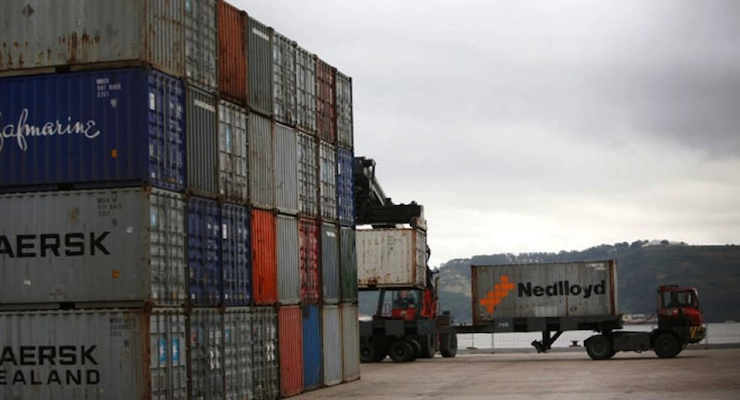

Stacked shipping containers and cargo in U.S. trade port. (Photo: Reuters)
The United States and 11 Pacific Rim nations agreed Monday on the terms of the Trans-Pacific Partnership (TPP), a historic but controversial and secretive trade deal. It was backed by President Barack Obama, though it created a partisan divide in Congress on a level not seen on any issue in years.
The negotiations took nearly six years to complete and, if ratified, is projected for better or worse to impact 40% of the global economy. Critics on both sides of the aisle say it will dictate the operations and give control to corporations of 40% of the global economy, as well as infringe on American sovereignty. The deal would completely eliminate tariffs that are considered barriers to free trade, a stipulation everyone from Republican frontrunner Donald Trump to socialist Vermont Sen. Bernie Sanders argues will hurt American companies and workers. The White House, however, chose to focus only on the removal of more than 18,000 imposed on U.S. exports.
“This partnership levels the playing field for our farmers, ranchers and manufacturers,” Obama said. “It’s an agreement that puts American workers first and will help middle-class families get ahead.”
The bottom line, critics of the plan have cited the very real potential for currency manipulation and a result of fewer U.S. jobs. Still, the deal was reached Monday morning in an Atlanta hotel. Congress is not expected to vote on the deal until early next year, but the Republican-controlled Congress and big business Democrats are likely to move it forward, though not without a fight from wings of both parties.




